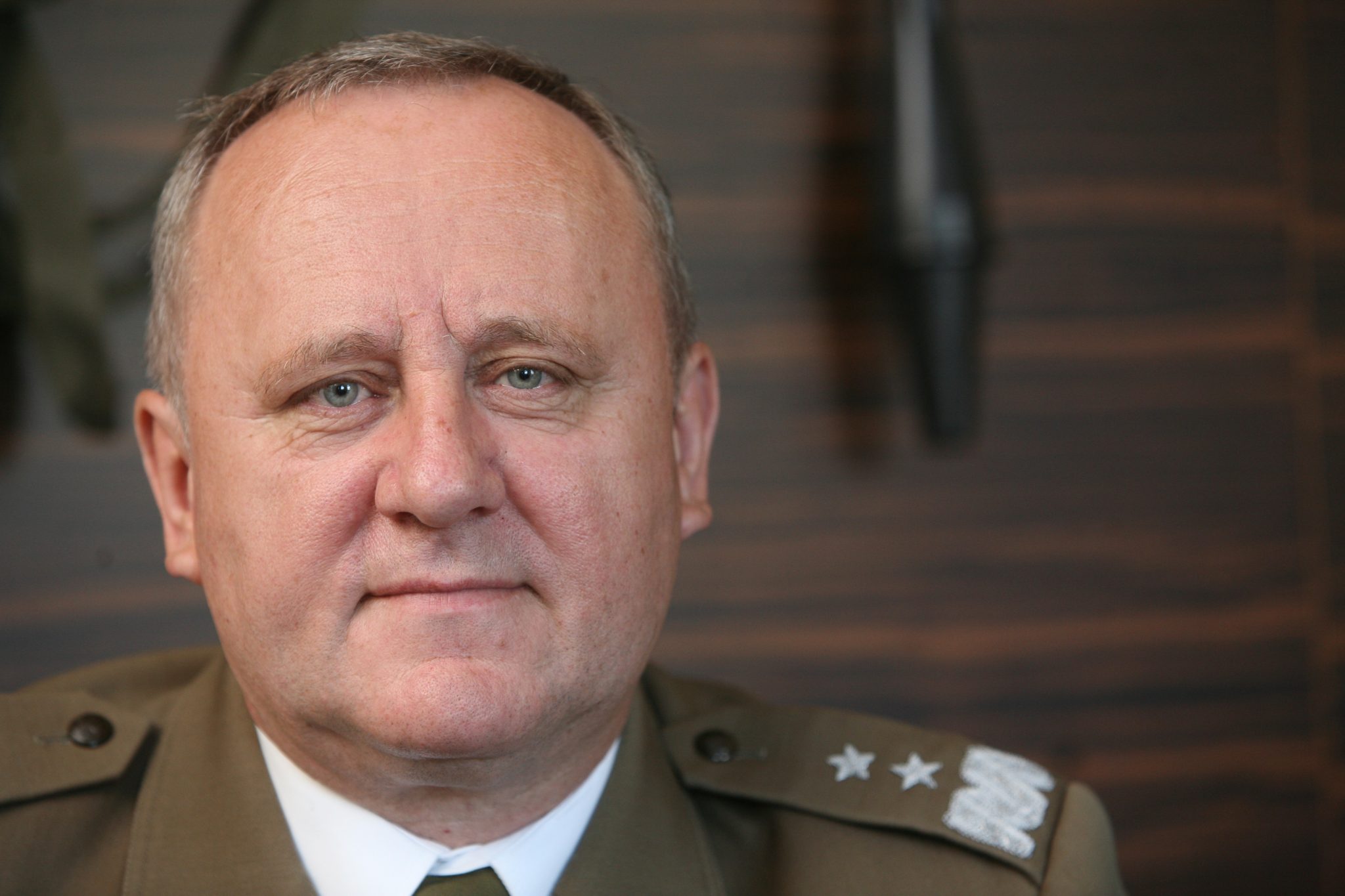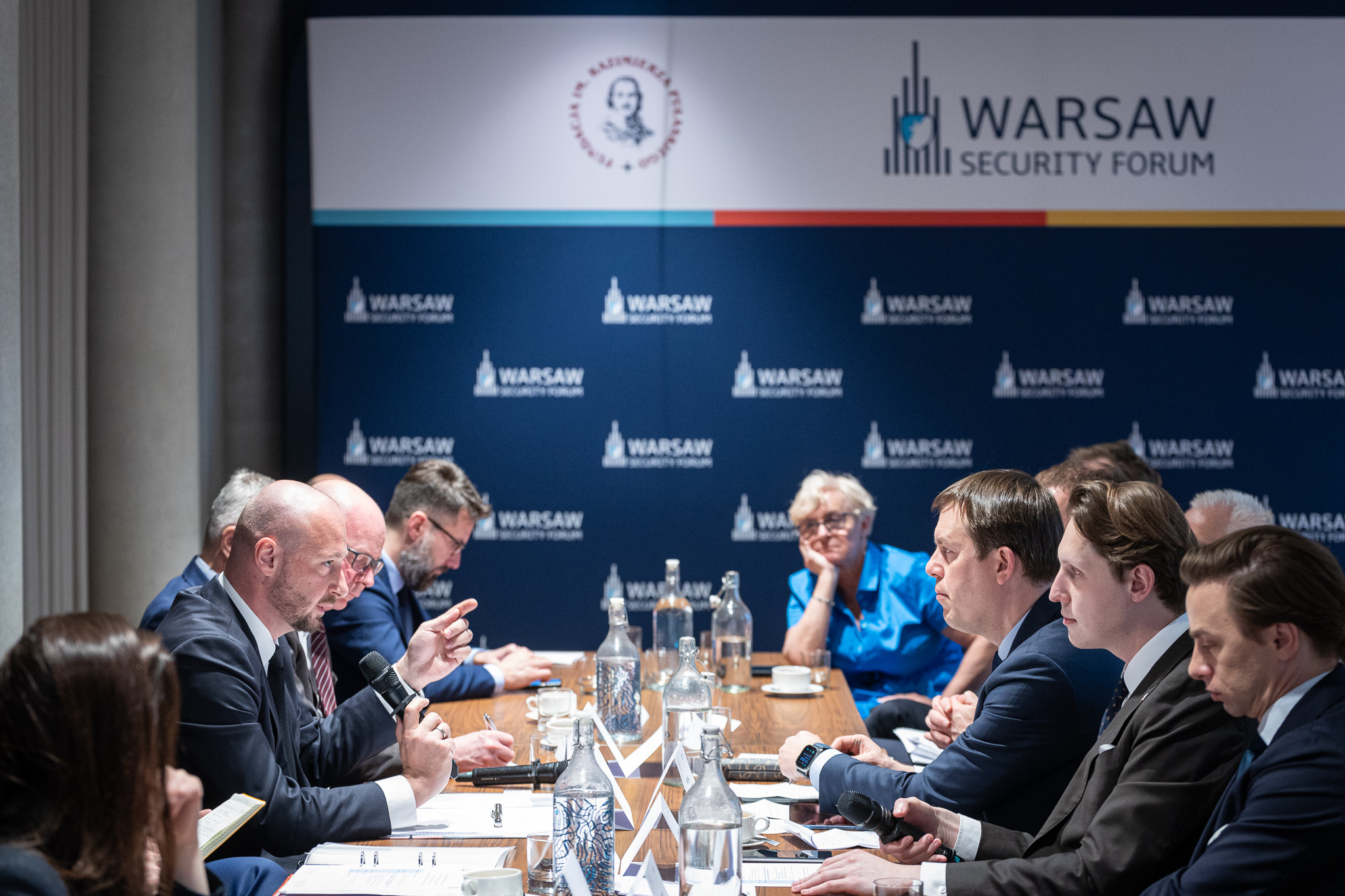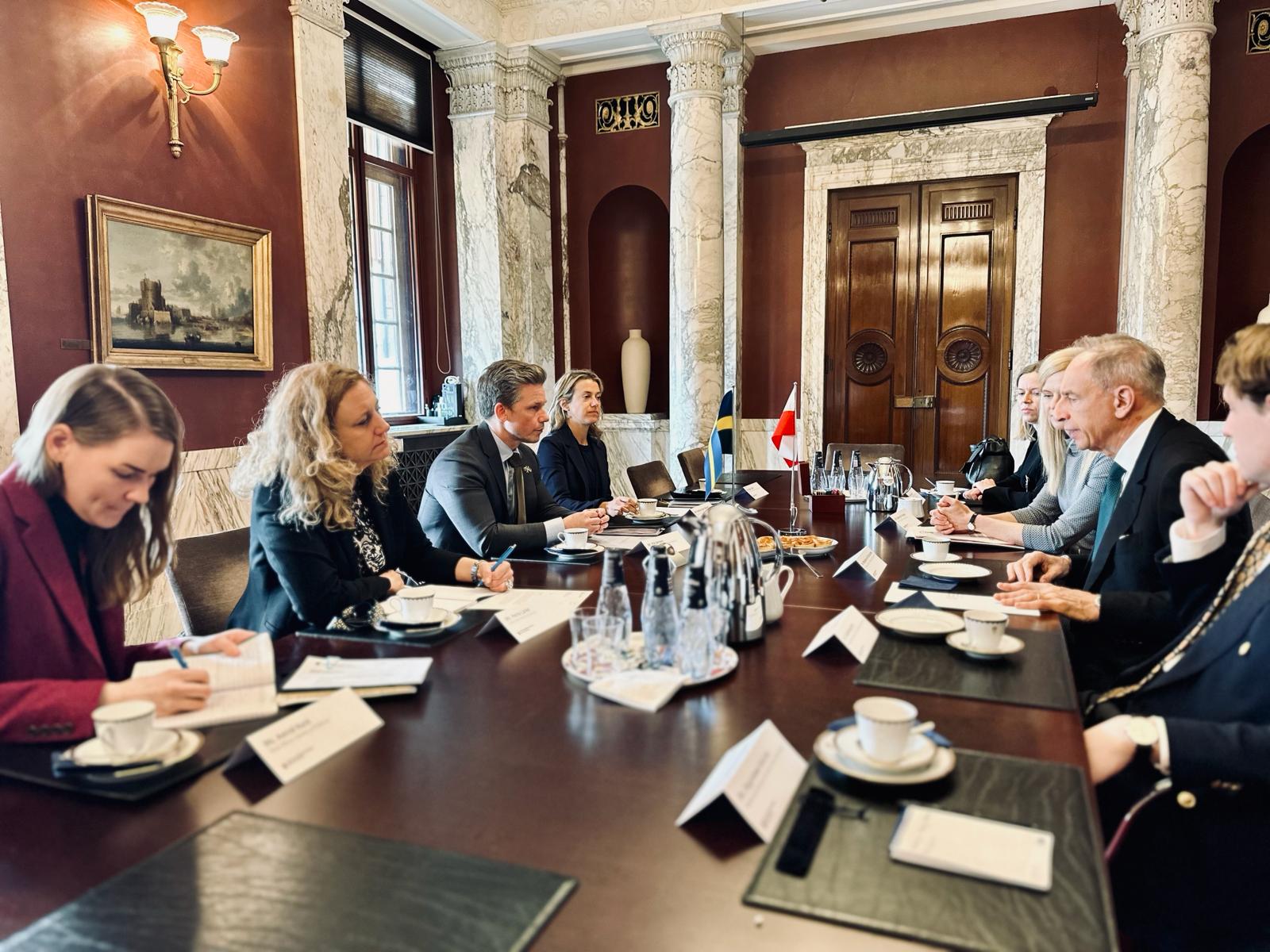Polish comprehensive approach towards security
The author: Gen. Bogusław Pacek, Advisor to NATO for the reform of the military education system of Ukraine
It often happens that in the execution of state security policy, the civilian and military structures function as separate worlds. The emergence of the concept of comprehensive approach changed this situation and as a result, the integration of these entities is increasingly being observed. The comprehensive approach in the security realm has been used by NATO as an approach towards crisis management that is to integrate political, civilian and military instruments in activities. It is believed that military means, although essential, are not enough on their own to meet the many complex challenges to international security .
The very essence of Polish comprehensive approach to national security is articulated in the article 5 of the Constitution of the Republic of Poland. It states that such values as the existence of the independent Polish state within its inviolable borders, freedom and security of citizens, sustainable development of the societal and economic potential with the constitutional emphasis on the national heritage and the protection of the environment , may not be treated selectively, a holistic approach is needed to cater for a wide variety of national needs. This will, in further perspective, contribute to prosperity and security in the region and wider international dimension.
Concerning traditional aspects of national security, namely the political-military dimensions, the Republic of Poland is on one hand, in a rather stabilized political situation nowadays.
By some analysts and politicians, it is even estimated that the country has hardly ever been in such a favorable geostrategic setting . But at the same time recent geopolitical situation in Ukraine and in the region, push our defense systems at reform that aims at enhancing operational capabilities of the Polish Armed Forces, to strengthen our homeland defense potential. Homeland defense is now our top priorty.
Social and economic security domains are no less important. Our economic conditions are, despite ongoing crises, fairly good, and are estimated to even increase . Yet, we face many challenges connected with the issues such as the high unemployment rate – which has a direct impact onthe economy – barriers to entrepreneurship, and limited development of the societal potential. The state of infrastructure is also unsatisfactory from the point of view of security. Moderation in defining the interests is imposed by the state of public finances, which is a consequence of general imbalance in the financial sector. Moreover, the research and development domains, in particular in the aspect of cooperation between scientific institutions and commercial entities, are also at the bottom of the agenda. Another sector to care for is our aging society. The reforms of maternal leave and pension system seem not enough to eradicate the negative trends in this field. As it is evident from the interrelations between the three sectors of security, it is impossible to work on one, without taking into account the others.
Environmental security and awareness came to the spotlight as well, since it is impossible to create favorable national security conditions while at the same time degrading the living environment. Not only due to the energy security issues, where the expected shale gas resources would provide an opportunity to improve the state’s energy security and make us more politically unabridged by Russia. We realized that sustainable development is the best way to follow.
Threats, challenges and opportunities in the international environment
Along with positive effects, globalization and information processes bring about new challenges for and threats to world security– in both the military and non-military aspects.The severity and pace of new divisions in the world, which accompany, inter alia, the globalization process, are increasing. Furthermore, the development of technology and the expansion of the world market have led to the rapidly growing demand for fuels, food and water . All these factors have an impact on policy making, economy and social processes. One has to bear in mind that global and regional security is also influenced by instability in certain regions of the world. At present, there are a number of hot spots (especially in the Middle East, but as recent events show, also in close neighborhood) which can easily ignite a conflict on a larger scale. This status quo is aggravated by a dangerous phenomenon of proliferation of weapons of mass destruction and means of their delivery, which in turn negatively affects disarmament processes.
In recent years, the gradual decline of the hegemonic power of the United States has become noticeable. It does not change the fact, however, that during the next two decades the USA will continue to be the most powerful country in the world – both in terms of military potential and the level of domestic product, and from the point of view of its share in the global turnover of capital and commodity markets.
Projections which assume a radical and increasingly faster development of the so-called emerging powers (frequently also referred to as BRIC countries: Brazil, China, India and Russia) as well as the leading position of China may turn out to be incorrect, as they take into consideration the amount of GDP only. The security of Europeis basically determined by the following four factors: the North Atlantic Treaty Organization, the European Union, the strategic presence of the USA, and, in particular in the light of recent events in the Ukraine, relations with Russia.
NATO is and most probably will remain the most powerful and effective politico-military alliance, which for both our countries is great news. The major challenge NATO faces today, however, is to define its role in the so-called “post-Afghan” period.
It seems that it is crucial to consolidate NATO around the defensive function, thereby contributing to the strengthening of the sense of security of all member states of the Alliance and, as a result, increasing their will and readiness to engage in out-of-area operations, which will be necessary also in the future. The strategic (political, military and economic) presence of the USA in Europe is, next to CSDP, one of the pillars of European security.
Consequently, a number of unknowns and challenges stem from the increasingly visible strategic reorientation of the USA towards Asia and the Pacific. An important external factor influencing the state of Poland’s security is relations between Russia and the West. Today, it is difficult to consider its clear perspective, in particular in the light of recent unrest in the Ukraine.
It is undeniable that Polish national interests and strategic objectives are favourably or adversely affected by international relations in the field of security. Poland is a credible member of NATO, the strongest defence alliance in the world, and an important and active member of the European Union.
Moreover, Poland develops strategic relations with the United States and is actively involved in regional cooperation, including with its neighbors. All this allows defining more ambitious national interests and strategic objectives. Therefore, Poland will stay actively involved in the efforts of the organizations such as the EU, NATO, Visegrad Group, OSCE, Council of the Baltic States and numerous others . This cooperation is now more important than ever due to the gradually faltering role of international organizations. This presents a serious challenge, which is reflected in difficulties faced by them when launching effective mechanisms of cooperation for ensuring security. One must always bear in mind that not much can be done without international agreement and cooperation.
Towards a comprehensive approach
Let us now look closer to how the comprehensive approach was achieved during the National Security Strategic Review. The basis for strategic planning in the area of security was the determination of national interests and resulting strategic objectives in the field of security. The point of departure for defining these objectives and interests was the diagnosis of Poland as a strategic security entity, conducted in the context of the historical formation of Polish national identity and statehood, the present constitutional and political conditions, and the current defence, protective, societal and economic potential.
Secondly, Poland has reviewed its security environment. The basic question for this review was asked: What is the current strategic security environment (external and internal, military and non-military security conditions) and what are the possible scenarios for the evolution thereof in twenty-year perspective?
Then it has been considered the possible, including recommended, concepts of Poland’s strategic activities (operational strategy), or ways of achieving the strategic objectives set up in envisaged scenarios, for shaping the security environment, including strategic tasks in the following areas of security: defence, protection, society and economy.
Three options resulted, corresponding to the three scenarios:
– an option of maximum internationalization of Poland’s security
– an option of strategic autarky (self-reliance and self-sufficiency); and
– an option of sustainable internationalization and autonomy of Poland’s security, corresponding to the evolutionary scenario that was chosen as the most viable one.
Lastly, Poland has outlined a concept of preparing the national security system. It has been elaborated the possible, including recommended,options of Poland’s strategic preparations in the field of security, i.e. the ways of maintaining and transforming the national security system that result from the operational strategy. As a result, it was confirmed that the following strategic security activities should focus on the following three main priorities:
– remaining determined and ready to act in the full spectrum of fields, areas and sectors of national security, with a special emphasis on these in which allied operations can be difficult;
– strengthening the international security community through the intensification of the integration processes in the Euro-Atlantic area, based on shared interests and values, especially within the system of NATO’s collective defence, the EU’s Common Security and Defence Policy, and strategic partnerships (including with the USA) as well as – within their framework – the strategic good–neighbourliness; and
– supporting and selectively participating in international operations aimed at preventing the emergence of new sources of threat or the spread of existing crises at a supra-regional level, based on a explicit international mandate .
In Polish approach it has been taken into the consideration that the preparatory strategy must be guided by the rules of accuracy, adequacy and economic viability.
Only then the strategic prorities may be achieved. That is why they are the integration of the national security control subsystem; professionalization of operational subsystems (defensive and protective); and the all-encompassing preparation of support subsystems (societal and economic).
The further leading thought of preparing the security system for both seizing the opportunities stemming from international cooperation and developing rationally capabilities to counter – jointly with allies or individually – military and non-military threats, should a need arise. This is an option assuming the continuing development of the already initiated processes of transforming the security system. Establishing a legal and organizational basis for the integrated national security system is a next step towards that direction.
The above assumptions of preparing the national security system of the Republic of Poland are all-embracing. Establishing the acknowledged priorities, thanks to the synergy effect, should ensure greater effectiveness, remove the duplication of responsibilities, and allow more rational spending of funds allocated for national security purposes.
The result will be a comprehensive, effective and integrated national security system that will effectively respond to all the state’s needs and interests.
SHARE THIS STORY ANYWHERE YOU LIKE
SHARE THIS STORY ANYWHERE
WSF Weimar Triangle Parliamentary Delegation Visit to Washington D.C.
On 15-17 of April 2024, the Casimir Pulaski Foundation and the Warsaw Security Forum have dispatched an advocacy mission to Washington D.C. to bolster support for the passage of the critical U.S. $60 billion aid package to Ukraine. The senior leadership of the Casimir Pulaski Foundation was joined by three members of national parliaments from Germany, France and Poland.
Poland-Sweden Strategic Dialogue
The Head of the National Security Bureau and the Swedish National Security Adviser met in Warsaw: Poland-Sweden Strategic Dialogue Highlights Shared Commitment to Regional Security.
High-level delegation to Stockholm
Last week Warsaw Security Forum organized a high-level delegation to Stockholm, to hold ministerial-level meetings. Their aim was to discuss the security situation in the region and the preparations for this year's edition of the #WSF2024.



